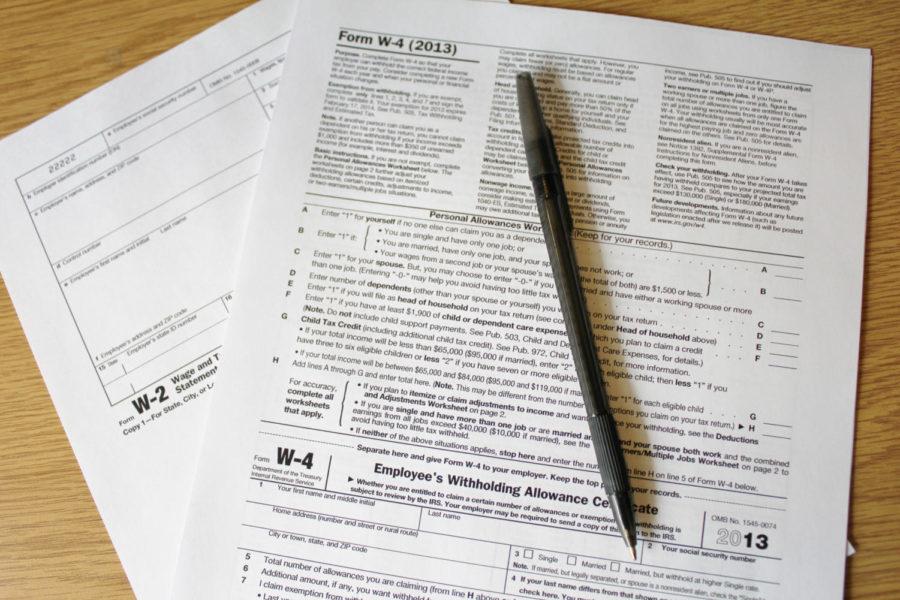Editorial: Paying taxes an act of resistance
Photo illustration: Lindsay Kayser/Iowa State Daily
Tax Preparation
February 16, 2017
Contrary to what our new president may believe, you have to pay your taxes.
While the Trump administration already indicated it will ignore the White House petition signed by more than 800,000 Americans because it calls for the president to release his full tax returns (which perhaps indicates he didn’t pay any income tax for a period of 18 years) and the House of Representatives Ways and Means Committee recently voted not to request his returns, citing Trump’s right to “privacy” (in spite of the fact that Trump is the first major party nominee since 1972 to not release his tax returns), the rest of us still have this obligation.
Although the prospect of your tax dollars going toward Trump’s weekend Mar-a-Lago visits may not be so appealing considering the above observations, you might want to think of paying taxes as an act of resistance.
Your taxes are allocated across several areas, including interest on the national debt, the military and veterans’ benefits, education and other government needs. They go toward less fortunate people’s healthcare and what some gracious people might consider basic human rights. Taxes also fund science organizations like the National Science Foundation and the National Institutes of Health, both of which provide funding in turn for research done at major universities like Iowa State.
If this is your first time paying your own taxes or you’re just not sure where to begin, there are resources at Iowa State that can help you out.
Accounting students in the College of Business are offering free tax preparation help via their Volunteer Income Tax Assistance Program, which runs through April 10 on Mondays and Wednesdays. Students can also sign up for the half-semester course Personal Finance in Early Adulthood (HD FS 183), which begins Mar. 6 and incorporates information about taxes and student loans. Meanwhile, the International Students and Scholars Office can provide tax help for international students and the university’s Financial Counseling Clinic can answer your broader questions about financial planning.
No matter your previous experience with paying taxes, or your knowledge of the difference between a W-2, 1098-T and 1095-A (your wages, tuition statement and Health Insurance Marketplace statement, respectively), remember that help exists if you need it to complete your taxes this year. And while you might not agree with every outlet your taxes go toward funding, taxes are an important aspect of our society’s ability to function, whether that means helping people in poverty access food or paying for the president and his family to profit off of their vacations.
The infamous April 15 deadline may feel distant now, but knowing your resources and motivations for paying taxes should help you finish this necessary task sooner rather than later — just in time to figure out which “Tax March” is closest to you.
















